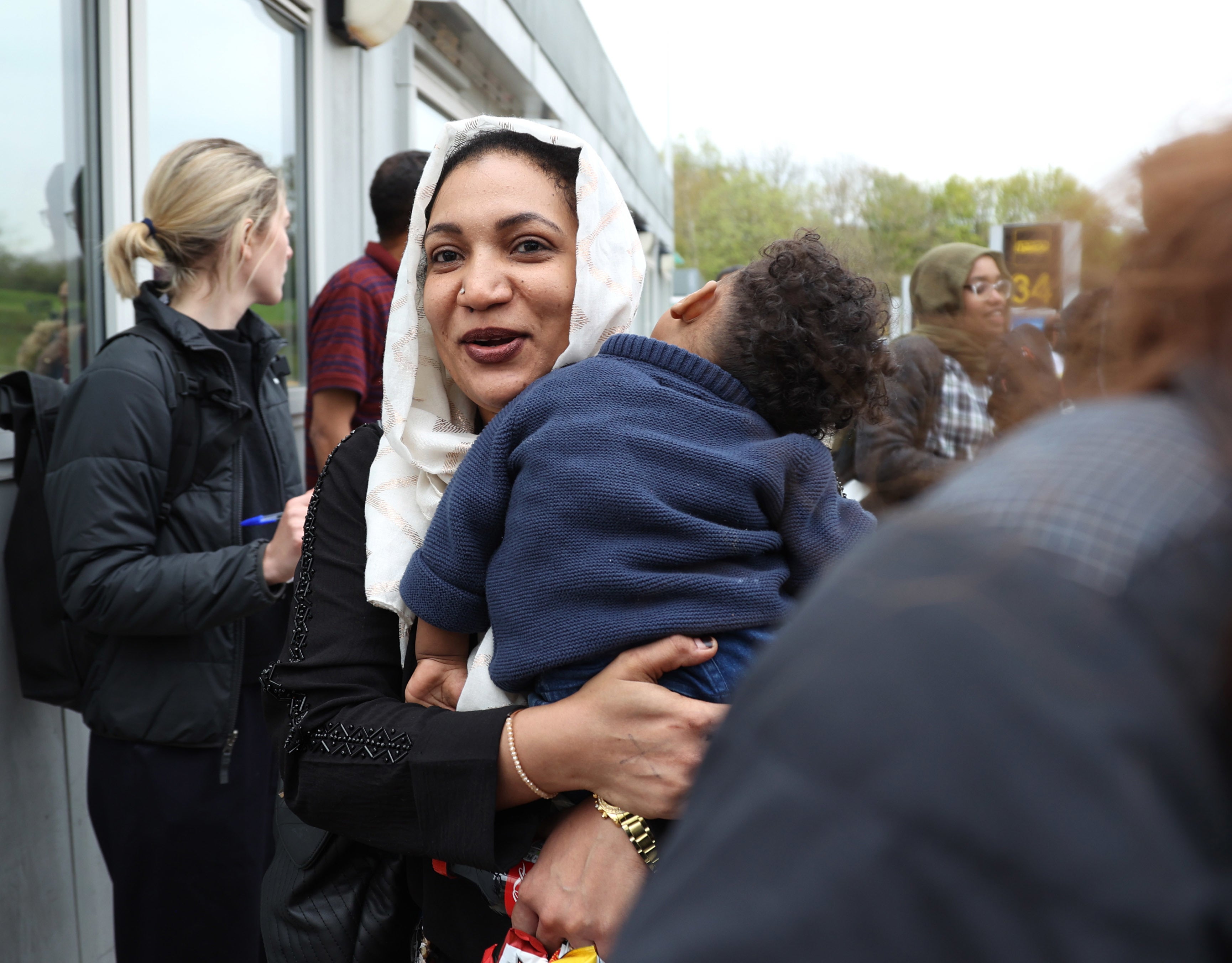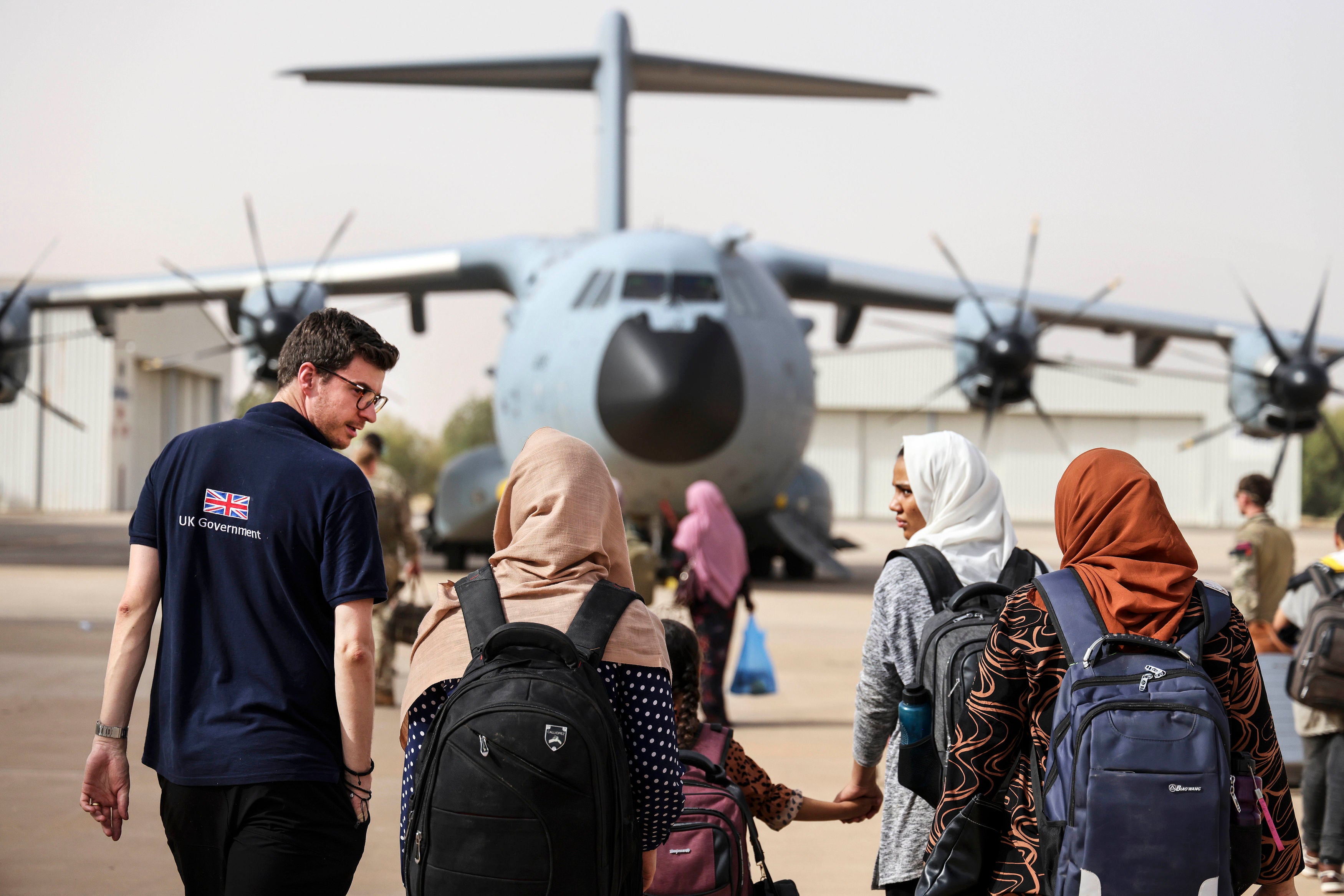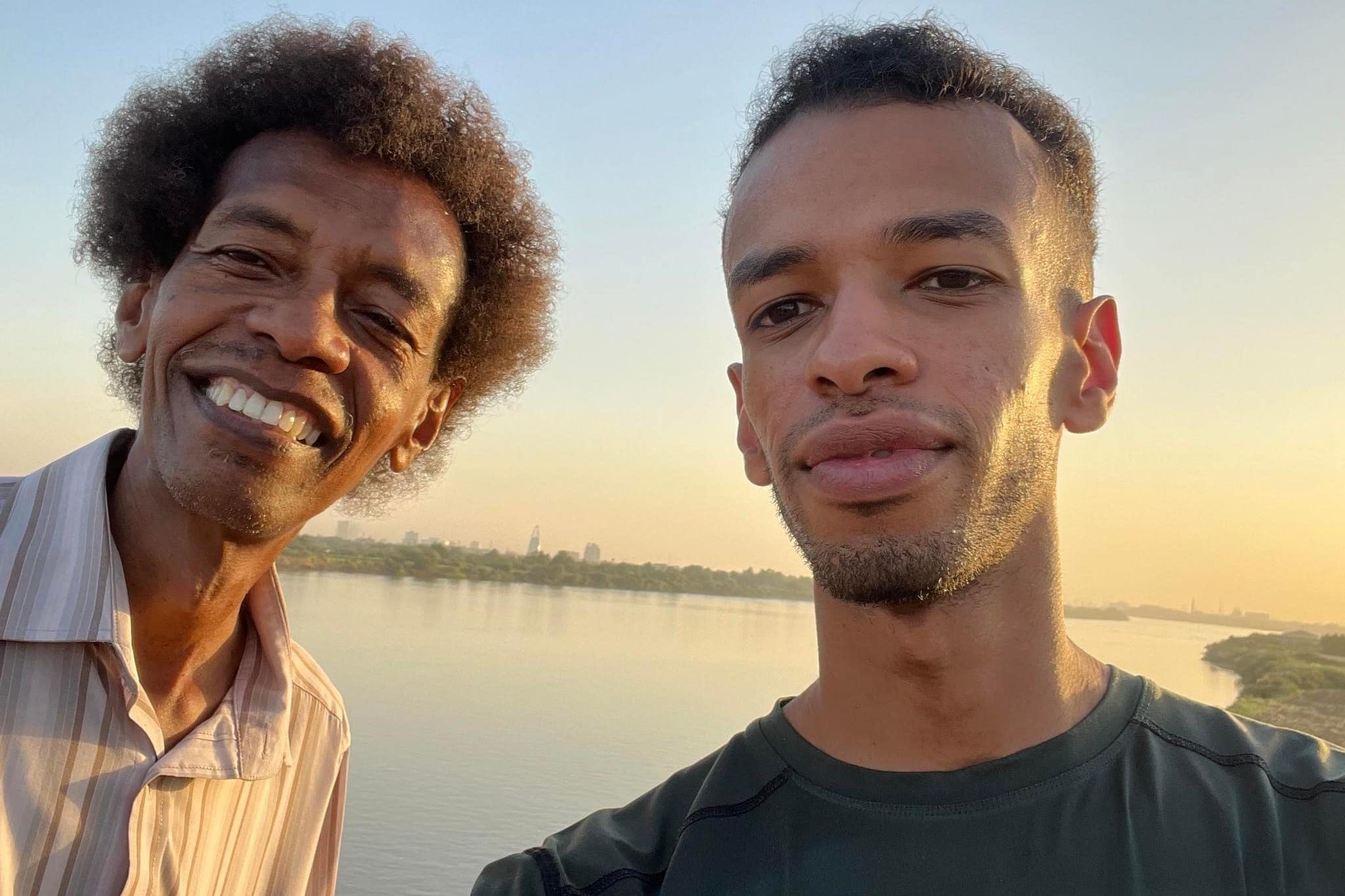Scramble to evacuate Britons from Sudan as ceasefire extended
Paramilitary and army accept three-day extension of truce

Sudan’s warring factions have agreed to a three-day ceasefire extension, as the government scrambled to evacuate more stranded British citizens from the war zone.
The paramilitary Rapid Support Forces and the Sudanese military both accepted the deal on Thursday hours before it was due to end.
The existing truce, which was to expire at midnight, has not stopped the fighting between the two sides but created enough of a lull for tens of thousands of Sudanese to flee to safer areas and for foreign nations to evacuate hundreds of their citizens by land and sea.
On Thursday violence again rocked parts of the capital Khartoum and the western region of Darfur. Earlier on Thursday, foreign secretary James Cleverly warned it would be “potentially impossible” to continue the evacuation if full-scale fighting resumed, as he urged UK nationals to head for the airfield outside the capital Khartoum.
The Foreign Office said that 897 people had been evacuated over eight RAF airlifts as of 4pm on Thursday – with further flights to Cyprus expected in the coming hours.
More than 2,000 British nationals in Sudan have registered with the Foreign, Commonwealth & Development Office (FCDO) under evacuation plans – but there are estimates that thousands more, including dual nations, could be stuck.
But only British passport holders and immediate family members with existing UK entry clearance are being told they can get on RAF flights out of Sudan, despite calls to help elderly people not currently eligible for evacuation.
Labour's shadow foreign secretary David Lammy said the narrow terms of the evacuation were almost certainly keeping many British nationals with Sudanese family members in the country despite the warnings to leave.
“It is not right that British nationals are unable to leave because their close Sudanese family members are being excluded from safe passage,” he said, urging Mr Cleverly “to take swift action to ensure that British citizens can travel with their family now”.
Mr Lammy’s concerns were echoed by senior Tory MP Alicia Kearns, the chairperson of the foreign affairs select committee, who called for elderly people dependent on their children who are British citizens to also be accepted.

Mr Cleverley said the government was “trying to facilitate as many people to leave the country as possible” – but rejected calls to extend the criteria.
“Where we have families where a British national, perhaps has a Sudanese national as spouse, Sudanese children or extended family, it makes the extraction more complicated,” said the foreign secretary.
No 10 said on Thursday that “you should not go to the airport unless you are a British passport holder or their dependent”. But Mr Sunak’s spokesperson also said there was “an element of discretion” for those working on the ground to decide who should go on the planes.
The UK has also been criticised for prioritising the evacuation of embassy staff ahead of civilians, in contrast to Germany and France. Defending the UK government’s approach from unfavourable comparisons with other European nations, Mr Cleverly said direct comparisons were not possible.

“Different countries have different sets of circumstances,” he told BBC Radio 4’s Today programme. “Countries where their nationals tend to live in a close expat community who are geographically co-located, it’s easier for them to move en masse.”
Urging people to head for the airport, Mr Cleverly added before the extended ceasefire was confirmed: “We cannot predict exactly what will happen when that ceasefire ends but what we do know is it will be much, much harder, potentially impossible.
“So what we’re saying to British nationals is if you’re hesitant, if you’re weighing up your options, our strong, strong advice is to go through Wadi Saeedna whilst the ceasefire is up and running. There are planes, there is capacity, we will lift you out. I’m not able to make those same assurances once a ceasefire has ended.”

The British ambassador to Sudan, Giles Lever, criticised for not being back in the UK when the fighting broke out, is being relocated from London to Addis Ababa in Ethiopia to play a key role in efforts to end the fighting.
Former British ambassador to the US Lord Kim Darroch said Britain has been “a little behind” other allies in the evacuation of citizens from Sudan. He told BBC Radio 4’s PM programme that the UK was “somewhere in the middle of the pack” rather than being the last to act.
Relatives of UK citizens evacuated from wartorn Sudan have spoken of their relief after their loved ones touched down on British soil, having been flown from Larnaca in Cyprus to Stansted Airport.
Ahmed Babikir, a British-Sudanese start-up founder from London, picked up his 63-year-old father Sharief on Wednesday, describing his safe return as a “massive relief”.
But added he still fears for the safety of other family members who have refused to leave the conflict-hit country. Mr Babikir also said he hopes the government will “use those same routes and same leverage they’ve built for humanitarian aid” for the people in Sudan.
A power struggle between Sudan’s army and paramilitary group Rapid Support Forces descended into fighting almost two weeks ago, with more than 500 people killed and thousands more injured. Gen Abdel Fattah al-Burhan and RSF chief Gen Mohamed Hamdan Dagalo have argued about the country’s proposed move to civilian rule.




Join our commenting forum
Join thought-provoking conversations, follow other Independent readers and see their replies
Comments